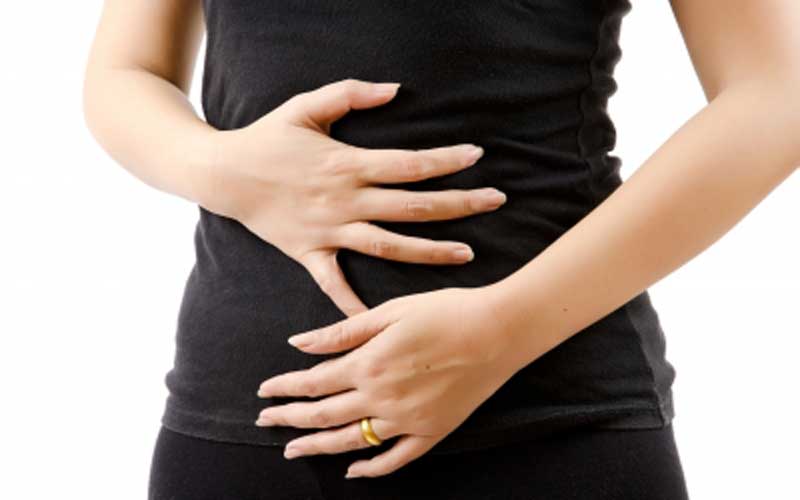Many of us would have suffered food poisoning at some point or the other in our lives. To me, it is a horrible go-through condition. Such are the times when you often wonder how long does food poisoning last? I will explain you about this in detail through this post. But before I tell you how long can food poisoning last, it is important for me to write as to what is food poisoning all about. Here is a quick definition.

What Is Food Poisoning?
Food poisoning is a very common yet distressing & sometimes even a threatening condition, which is caused when an individual consumes contaminated food. The major causes of food poisoning are
- Bacteria
- Viruses
- Toxins
- and Parasites
The above 4 infect the food to a great extent.
Also, read what to do when you have food poisoning
How Long Does Food Poisoning Last?
Here is the right answer to the question how long can food poisoning last. Food poisoning lasts between 1 day and 3 days but the sickness caused can have its effect to even 2-weeks. Generally, it takes 12 – 36 hours for a person suffering from food poisoning to completely get over it. On the other hand, it depends on the kind of poisoning. Food poisoning happens when
The food is not stored properly
- The food is unclean
- The food is uncooked
- The food is not handled the right way
Food Poisoning lasts from 1 day to 3 days. The sickness caused due to it lasts up between 10 & 14 days.
The article doesn’t end here. There are few more things, which is extremely important for me to write over here, as it is associated with food poisoning.
General Signs & Symptoms Of Food Poisoning
- Vomiting
- Watery diarrhea
- Cramps
- Abdominal pain
- Nausea
- Fever
When Should You See A Doctor?
Food poisoning can be mild to severe. Sometimes, even leading to death. So, never take this lightly or leave it as such. Seek immediate medical attention when you happen to see the below signs
- Blood in the vomit
- Inability to keep liquids. You vomit within sometime after you drink or eat something
- Severe diarrhea (over 3 days)
- Blood in bowel movements
- Extreme abdominal cramping
- Severe pain
- Signs of dehydration like dry mouth, excess thirst, little/no urination, dizziness, weakness, lightheadedness etc
- Finding it hard to swallow your food
- Difficulties in speaking
- Oral temperature that is high than 38.6 C (or 101.5 F)
- Double vision
- Weakness in muscles
How Can You Impede The Infection From Spreading To Others?
Certain infections causing vomiting and diarrhea can be easily passed onto others. If you’re suffering from it, make sure that you stop the infection from spreading. What can you do to stop such infections? Read this
- Wash your hands properly using a good quality liquid soap after the toilet. Dry yourself thoroughly after washing
- Never do the mistake of sharing your flannels and towels with others
- At this time, don’t do the mistake of cooking food or serving others since the infection may be passed on
- Clean the toiler regularly after you use
- Clean or wipe the toilet seat, bathroom taps, flush handle, door handles and surfaces with detergent and hot water at least once in a day
- Use a separate cloth to clean the toilet (perhaps disposable)
- Until you are completely well, stay off college or work
- Don’t use your swimming pool until you recover
It isn’t enough for you to know only about symptoms, signs, impeding infections or how long does food poisoning last. It is vital for you to know the ways of preventing food poisoning so that you will not suffer such a terrible condition.
How To Prevent Food Poisoning?
Always remember than this — “Prevention is better than cure”. Have you heard of “4 Cs”? If no then let me tell you that Food Standards, UK have come up with this thing called 4 Cs. It stands for
Cleanliness, Cooking,Chilling,Cross Contamination
1. Cleanliness
- Keep all your utensils, personal things and work surfaces 100% hygienic
- Wash & dry your hands thoroughly. Especially, before you cook food, before eating your meals and after the toilet
- Cover all your cuts or sores on hands using waterproof plaster. Never touch your food with open wounds
- Never cook food & serve others while suffering from vomit, diarrhea or any other sickness
- Keep your surroundings very clean
- Change your tea towels and dishcloths regularly
- Drink clean water
- Eat fresh food
2. Cooking
- Always cook your food properly. Especially, meat. Proper cooking of meat ensures that it is free from germs
- Avoid reheating the foods more than 1 time
3. Chilling
- Refrigerate or chill the foods that requires to be
- Never leave the food for days in your fridge since bacteria might multiply & which in turn causes food poisoning
- Don’t open the refrigerator door unnecessarily. It has to be cool always. Opening the door often prevents your refrigerator from staying cool
- It is very important for you to cool the leftover foods first before even placing them in your refrigerator
4. Cross Contamination
Contamination is the primary reason that leads to food poisoning. In order to prevent your food from getting contaminated, there are few things you need to learn and practice too.
- Clean your hands properly using liquid soap
- Wash your hands thoroughly after touching raw-foods
- Keep raw foods, ready-to-eat foods and cooked foods separately
- Always keep the raw meat inside sealable containers & at the fridge’s bottom portion
- Clean your chopping board before using
- Make sure that your knives & utensils are hygienic.
There are some more food poisoning prevention tips. They are listed below
Food Poisoning becomes serious for few people and has even led to severe illness and decreased body immune system functioning. Anyone can get food poisoning, but only few suffer serious illness. Medical field has categorized certain groups of people who are more likely to acquire food borne illness than others.
Categories of people who are more likely to get food borne illness are:
- Children who are younger than 5 Years of age
- People with weak immune system and resistance against pathogens
- Adults aged from 50-65 and older
- People with medical conditions like Cancer, HIV/AIDS, Diabetes or undergoing any medical treatments
- Pregnant women.
Some High-Risk people tend to immediately react to foodborne pathogens causing severe food poisoning due to their poor immune system ability. Younger children, babies who have started taking semi-solid/solid-foods are under the category of ‘developing immunity’ so their ability to fight germs is not strong.
Food poisoning can be dangerous to them and can lead up to dehydration and severe diarrhea. Children who are under 5 years tend to be more likely hospitalized if they have salmonella infection than older kids. Severe E.coli 0157 infection has even led to failure of kidney in 1 out of 8 children under the age 5. So we have to be extra careful in the food area when it comes to kids.


